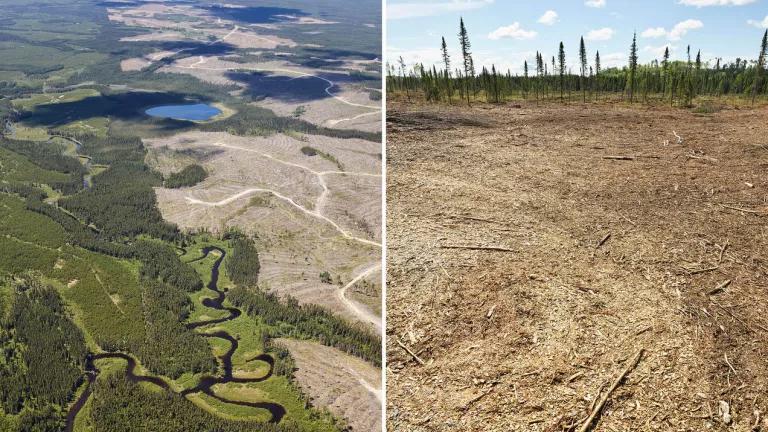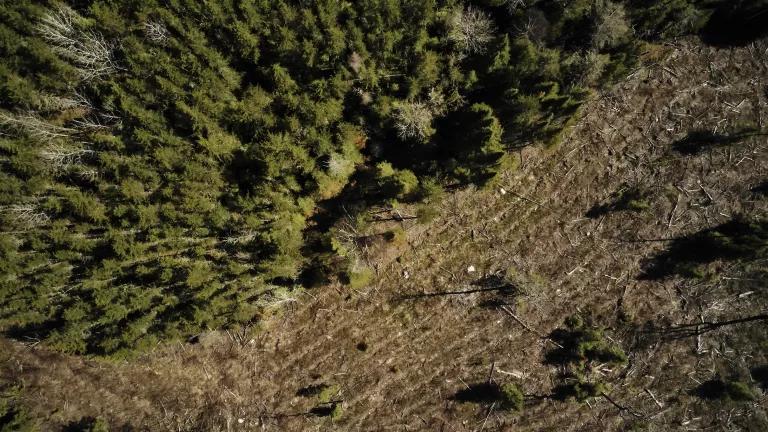SFI Under Scrutiny for Misleading Sustainability Claims
The Sustainable Forestry Initiative (SFI) is in the hot seat—and they should be held accountable.

Clearcut in Quebec
In a recent complaint filed by environmental law non-profit Ecojustice with the Competition Bureau of Canada, eight environmental organizations, including Greenpeace Canada and the David Suzuki Foundation, are requesting an investigation into SFI’s dubious claims about its sustainable forestry certification scheme. The complaint reiterates long-held concerns from civil society organizations in both Canada and the U.S. that SFI’s requirements are vague and discretionary, essentially allowing for industrial logging operations in old-growth forests and threatened and endangered species habitat to be promoted as “sustainable” and even climate-friendly.
The complaint makes the case that because SFI's sustainability claims are both untrue and made with the purpose of promoting the adoption of its Standard and the purchase of wood and wood products certified by SFI, they violate the Competition Act which provides a civil prohibition against false or misleading representations. Moreover, the complaint asserts that SFI’s misleading claims “have contributed and continue to contribute to unsustainable logging globally and in Canada on an immense scale.”
SFI has been at the center of the Government of Canada’s efforts to promote itself as a leader in “sustainable forest management.” Canada boasts of having the largest area of sustainably managed, third-party certified forests in the world. However, SFI represents a whopping 115 million hectares of this, or nearly twice the certified area of the next two largest certification bodies combined. In embracing SFI, Canada employs circular logic – Canada’s forestry is sustainable, therefore SFI certifies it, and since SFI certifies it, Canada’s forestry is sustainable.
If the Competition Bureau’s investigation finds that SFI has made false and misleading statements to the Canadian public, the complainants request that the Bureau require SFI to remove and publicly retract its claims of sustainability from public communications, in addition to paying a CAD $10 million fine.
In the meantime, the complaint raises important concerns for those companies that currently rely heavily on SFI certification to give their supply chains a “sustainable” stamp of approval. Just as Canada uses SFI’s certification to create social license for its wood products, many companies, like Procter & Gamble and Home Depot, among others, still deem SFI certification an acceptable substitute for internal due diligence.
Increasingly, this is not only an issue of failing to protect forests and consumers, it’s spelling trouble for the companies relying on SFI’s standards themselves. Just recently, an NRDC complaint to the Securities and Exchange Commission questioned a characterization by Procter & Gamble that SFI, among other wood pulp certifiers, guarantees the elimination of forest degradation, despite clear evidence to the contrary.
For too long, SFI has had the support of a marketplace ready and willing to hide behind a veneer of “sustainable” forest management. Not only should SFI be held accountable for its claims, further responsibility rests on the companies purchasing these wood products, as well as those institutions financing and investing in their endeavors, to go beyond third-party certification if their sustainability claims are to carry any weight.




